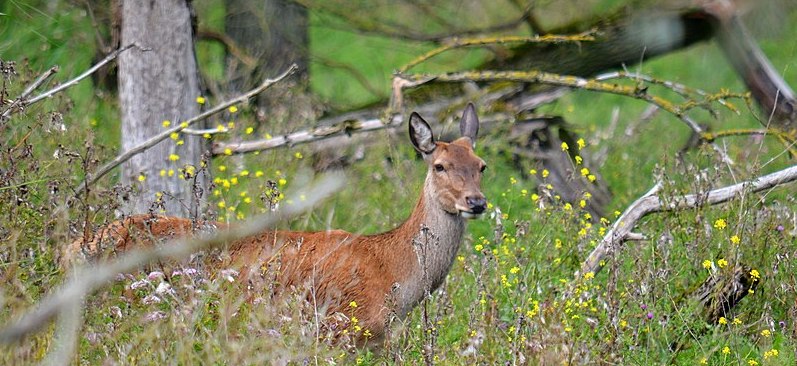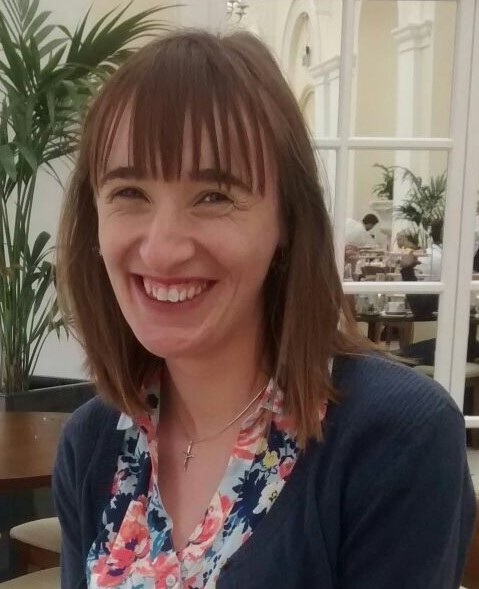
© Alias 0591, Creative Commons Attribution 2.0 Generic license.
Galloping wild horses, cranes soaring overhead, beavers splashing in rivers and the howl of wolves echoing through the forest: this is a vision that has led to an explosion of interest in the topic of rewilding. George Monbiot arguably brought rewilding into the public sphere through his 2013 book Feral, capitalising on an unspoken yearning in our society to reconnect with nature. An impressionable biology undergraduate at the time, I recall feeling a thrill (yes, I’m a nerd!) as Monbiot set out a radical new vision for conservation. Fast forward to 2019, and rewilding is an integral component of ever-increasing concerns surrounding environmental sustainability; a recent petition calling for the restoration of British nature has, to date, attracted nearly 100,000 signatures.
So, what is rewilding, and how can I respond as a Christian? Is there a richer theological message from rewilding than simply environmental stewardship; a reconciliation between human beings and God’s creation that points us towards the ultimate restoration to come?
According to the NGO Rewilding Britain: “Rewilding is the large-scale restoration of ecosystems where nature can take care of itself. It seeks to reinstate natural processes and, where appropriate, missing species – allowing them to shape the landscape and habitats within.” A classic example is the reintroduction of wolves to Yellowstone National Park in 1995. This led to a decrease in large herbivore populations, reducing grazing pressure, encouraging vegetation regeneration and allowing a whole host of animals to thrive. Ecologists call this phenomenon a “trophic cascade”, in which suppressing a level in a food web (in this case, herbivores) has profound ecological consequences for the entire ecosystem.
However, rewilding is an area of considerable controversy. Do rewilding projects have to include reintroducing top predators, such as wolves? Is it appropriate in the 21st century to be restoring ecosystems to a historical state, considering how drastically our world has changed since the evolution of humankind? Indeed, rewilding leads us to question the very meaning of the word “natural”. Is “natural” the absence of humans; a wilderness?
It would take more than one blog post to discuss these questions, so I will focus on the last. Since the late Pleistocene, humans have shaped our ecosystems in a way no species has before; there is almost no landscape left on earth devoid of anthropogenic influence. Humanity’s vast and expanding population, and the demand of our lifestyles on the planet’s natural resources, means this situation is only likely to continue. If “natural” is the absence of humans, it is currently an impossible state to achieve.
At this point, it would be easy to paint an apocalyptic picture, in which Homo sapiens steadily progress along a path to their own destruction at the cost of ecosystems around them. However, for Christians, there is more to this story. God calls on mankind to rule over his good creation, but he does not command us to do so as sinful human beings. He creates us to rule in the image of the Trinity, with eternal love, submission and care (Genesis 1:26). This is not something we should shy away from; God wants us at the heart of his creation, actively caring and tending for it in a way that reflects his character (Genesis 2:15).
What are the implications of these theological truths for rewilding, a concept which seemingly removes humans from the picture? Rewilding is a land management choice made by humans; we are not absent from it. However, unlike traditional conservation, rewilding does not base itself on “management goals”, manipulating a habitat to protect a particular species population or community. It requires stepping back, allowing ecosystem processes to resume and observing the results. Most rewilding projects in the UK focus on restoring upland peatlands and woodlands, as well as wetlands and marine habitats. As Britain is one of the least forested countries in Europe,and our peatlands are of international importance, this is a commendable aim. Not only are these habitats rich in biodiversity, but they play a vital role in carbon sequestration, water purification and flood prevention.
However, in our increasingly urbanised society, rewilded landscapes provide more than just a list of services to humans. They serve as a reminder that we must resist the temptation to exploit and plunder, and rather observe, enjoy and sustainably manage the resources God has gifted to us. Psalm 104:10-23 depicts a beautiful picture of wild and domestic animals living alongside human beings. The key here is balance; I’m not suggesting it is possible or realistic to rewild everywhere, but there is a place for this approach in repairing humanity’s broken relationship with creation.
Perhaps that is why, instead of “rewilding”, I prefer to think of this topic as “reconciliation ecology”, a term I heard proposed in a recent talk by ethnozoologist and Christian, Professor Andy Gosler. As we acknowledge Ascension Day, we recognise Jesus will return to earth (Acts 1:11) and the whole of creation will be renewed and restored (Isaiah 65:17; Romans 8:21; Revelation 21:1). Through Christ’s sacrifice on the cross, this restoration process is already at work in us when we become Christians. Every day we can witness towards this eternal destiny through our rejection of sin and aspiration to be more like Jesus. Rewilding is a means by which we can reconcile ourselves with God’s gift of creation, bringing restoration to our landscapes after hundreds of years of environmental exploitation and destruction, perhaps providing the tiniest glimpse of what is to come when God’s kingdom is finally revealed.
 Abigail Patterson is the current Development Officer for Christians in Science. She studied Biological Sciences at St Hilda’s College, University of Oxford and subsequently conducted graduate research in palaeoecology and plant evolutionary ecology. She has taught Biology at both school and undergraduate level and worked with several conservation charities, including the Earth Trust and the Scottish Wildlife Trust. Abigail came to know Jesus through the witness of a Christian physicist friend and is passionate about reading her Bible faithfully whilst accepting current findings of modern science. In her spare time, Abigail loves spending time outdoors; running, cycling and exploring ancient woodlands looking at plants. She is based in Oxford with her husband Matthew, where they both attend St Ebbe’s Church.
Abigail Patterson is the current Development Officer for Christians in Science. She studied Biological Sciences at St Hilda’s College, University of Oxford and subsequently conducted graduate research in palaeoecology and plant evolutionary ecology. She has taught Biology at both school and undergraduate level and worked with several conservation charities, including the Earth Trust and the Scottish Wildlife Trust. Abigail came to know Jesus through the witness of a Christian physicist friend and is passionate about reading her Bible faithfully whilst accepting current findings of modern science. In her spare time, Abigail loves spending time outdoors; running, cycling and exploring ancient woodlands looking at plants. She is based in Oxford with her husband Matthew, where they both attend St Ebbe’s Church.




